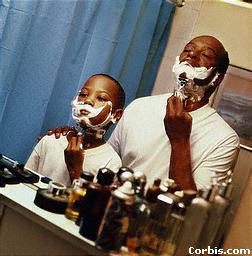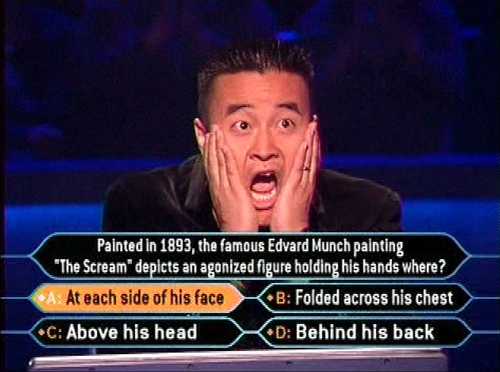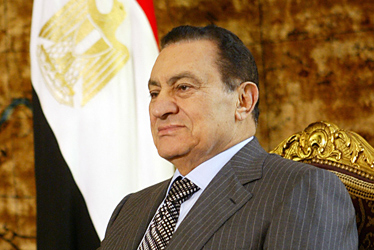When dreams come true, and prayer works.As a student athlete sacrifice is a word I hear far to often. Giving up weekends, holidays, and extended breaks from school, it can easily be described as a full time job. Although sacrifice helped me get through school.
Growing up with a single mother, if I wanted to attend college I would have to provide for myself for the most part. Lucky I have grandparents that are able to help me along my journey. Still I had to make a path for myself, so I decided to play basketball. Receiving a scholarship paved the way for me to attend college.
Once in college I learn to fully understand what it took to be a student-athlete. It wasn’t easy, but everyone told me, it would make you a better person and employers like the fact you know what team work involves. I believe it somewhat hinders you from accomplishing your true dreams. Unless you want to be a professional athlete.
I believe collegiate athletes forget to ponder what is next after their time runs out as an athlete. College sports propose a double standard. At one moment you’re supposed to go to school maintain a certain GPA. Then again you’re supposed to spend three hours a day in the gym. How can anyone reach full potential in any area?
At one point in my life my dream was to play college basketball, after fulfilling that dream the game became not as fun. The work ethic was challenging, the responsibility and commitment became more of a hassle, and the importance decreased drastically.
How was I supposed to get ready for my future and at the same time focus on a sport that required 35+ hours a week? I believe it’s not possible. As an athlete you’re always playing from behind in the classroom.
Recently I wasn’t sure where my future was headed, getting ready to graduate this summer, I was losing sleep, every night I stayed up in the internet looking for jobs, opportunities, internships. As a communication broadcast major I watche reporters films, and compared myself to them to see if I was ready. I wasn’t, not even close. I may have had the confidence but the ability to create a story was going to be difficult for me. Basketball did teach me time management, and to understand how a reporter has to get a story in a certain period of time, but in this case I would be a loser being a reporter.
I then learned what sacrifice truly meant, not to only give up but to lose. As I look at what I lost in my life as an athlete I’m not sure if I would do it over again. Yes, I’ve learned things about myself as an athlete, and made some friends, but sacrifice for those things when I could have gain more experience for my career, better grades, more family time, and ultimately more time for myself. I am unsure if the positive weighed out the negative in this instance.
It came to a point I was fed up, didn’t understand the path God wanted me to follow. So I prayed. I prayed that he would provide the answers, I prayed that he would put it in my heart the decisions I needed to make. I hadn’t been to church consistently like I use to. So I felt like I neglected the big man, but then I remember what my pastor use to say. God will never leave you or forsake you. So I knew he would provide.
That’s when things all of sudden looked up. First a friend said I could live with her during the summer for a small cost. Then I got a call from the Justin Unell the Sports Director at NBC Action News asking me to come down for an interview, that day they hired me on the spot. I was leaving the lunch room, and a pastor began to talk to me about life, and speaking positivity into your life. I walked outside and received a call from the general manger at 54th St. Bar and Grill offering me a job as a server. I couldn't believe it, but then again I knew prayer worked.
It’s funny a movie taught me prayer is like a GPS. You type in a address, telling it where you want to go. Just like you pray and the prayer goes up to God. Then the GPS tells you the you the route to take, but it doesn’t tell you if there is going to be traffic or the person in front of you is driving, or if you might get into a wreck. That is just like a prayer God hears your prayer and he will provide it to you at the right time. He just might take you through a few things before your blessing arrives, so he knows you are ready to receive.
It’s amazing to me how these things play out. At times when nothing looks up I tell you to pray. Pray and everything will be provided for you.
Growing up with a single mother, if I wanted to attend college I would have to provide for myself for the most part. Lucky I have grandparents that are able to help me along my journey. Still I had to make a path for myself, so I decided to play basketball. Receiving a scholarship paved the way for me to attend college.
Once in college I learn to fully understand what it took to be a student-athlete. It wasn’t easy, but everyone told me, it would make you a better person and employers like the fact you know what team work involves. I believe it somewhat hinders you from accomplishing your true dreams. Unless you want to be a professional athlete.
I believe collegiate athletes forget to ponder what is next after their time runs out as an athlete. College sports propose a double standard. At one moment you’re supposed to go to school maintain a certain GPA. Then again you’re supposed to spend three hours a day in the gym. How can anyone reach full potential in any area?
At one point in my life my dream was to play college basketball, after fulfilling that dream the game became not as fun. The work ethic was challenging, the responsibility and commitment became more of a hassle, and the importance decreased drastically.
How was I supposed to get ready for my future and at the same time focus on a sport that required 35+ hours a week? I believe it’s not possible. As an athlete you’re always playing from behind in the classroom.
Recently I wasn’t sure where my future was headed, getting ready to graduate this summer, I was losing sleep, every night I stayed up in the internet looking for jobs, opportunities, internships. As a communication broadcast major I watche reporters films, and compared myself to them to see if I was ready. I wasn’t, not even close. I may have had the confidence but the ability to create a story was going to be difficult for me. Basketball did teach me time management, and to understand how a reporter has to get a story in a certain period of time, but in this case I would be a loser being a reporter.
I then learned what sacrifice truly meant, not to only give up but to lose. As I look at what I lost in my life as an athlete I’m not sure if I would do it over again. Yes, I’ve learned things about myself as an athlete, and made some friends, but sacrifice for those things when I could have gain more experience for my career, better grades, more family time, and ultimately more time for myself. I am unsure if the positive weighed out the negative in this instance.
It came to a point I was fed up, didn’t understand the path God wanted me to follow. So I prayed. I prayed that he would provide the answers, I prayed that he would put it in my heart the decisions I needed to make. I hadn’t been to church consistently like I use to. So I felt like I neglected the big man, but then I remember what my pastor use to say. God will never leave you or forsake you. So I knew he would provide.
That’s when things all of sudden looked up. First a friend said I could live with her during the summer for a small cost. Then I got a call from the Justin Unell the Sports Director at NBC Action News asking me to come down for an interview, that day they hired me on the spot. I was leaving the lunch room, and a pastor began to talk to me about life, and speaking positivity into your life. I walked outside and received a call from the general manger at 54th St. Bar and Grill offering me a job as a server. I couldn't believe it, but then again I knew prayer worked.
It’s funny a movie taught me prayer is like a GPS. You type in a address, telling it where you want to go. Just like you pray and the prayer goes up to God. Then the GPS tells you the you the route to take, but it doesn’t tell you if there is going to be traffic or the person in front of you is driving, or if you might get into a wreck. That is just like a prayer God hears your prayer and he will provide it to you at the right time. He just might take you through a few things before your blessing arrives, so he knows you are ready to receive.
It’s amazing to me how these things play out. At times when nothing looks up I tell you to pray. Pray and everything will be provided for you.












